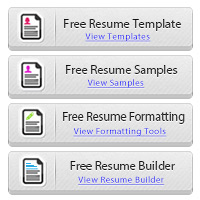Ways to make your resume relevant to an employer
Google is one of the places many people would love to work. It is rated among the best companies for workers. Getting a job with Google requires something more than the ordinary resume for you to get the interview.
Here are 6 secrets of Great resume based on psychological dimensions that would get you a job in Google and any other company.
Tell a story with numbers
Translate your impact on the bottom line in numbers. Show your past accomplishments in numbers that portrays the extent of impact that you have by indicating it in measurable parameters such as numbers and not just words. You will stand out when you do this because most applicants waste space with things like “detail oriented“, “motivated” and other unverifiable claims.
- How did you manage to increase sales
- How many new clients did you bring in clients in, what impact did that have?
- How were you able to reduce costs, improved operations.
- Did you recruit new employees or complete some important projects.
Greek philosopher Aristotle who taught three pillars of effective persuasion supports this position.
He listed ethos, pathos, and logos to be the three pillars of effective persuasion. Logos employs logic, facts, and evidence. A resume is meant to sell you and persuade the employer to consider you for the position. By quantifying your impact, you are using logos effectively with evidence, logic, and facts.
Your interest should be quirky as possible in your resume
Drake the great philosopher made the popular quote “ start from the bottom.”
You should try that. The interest section of the resume is usually within the last line. Most people usually make this line simple if not copied from other resumes. Most people will list items such as movies, sports, reading, and traveling. Why not be original and write something that will spark conversation during the interview or something that would strike an emotional chord. At least be specific. It is a fact that we bond when we share uncommon commonalities. Interests are a huge bonding opportunity. Try to avoid religious affiliations, or listing political parties or memberships no matter how strongly you feel about it.
Try to network your way in
Relationships are more important than resume and you probably have realized that. Before you apply to any organization try and connect with an employee who already works there before.
Often a simple message stating, hey I’m applying to “Company A” and I saw that you worked there before. How did you like your job, what is the work environment like. You will be surprised how much information people are willing to share, especially if their experience was negative.
If you have a connection and a good conversation, you could get some feedback on what the company is looking for. With these conversations in mind you will be able to customize your resume to different companies and can make your resume instantly matter to an employer. Sometimes these connections can also lead to positive referrals which can bring you in front of the hiring managers.
Associate yourself with brands that matter
You build credibility by associating yourself with big brands from trusted institutions. If you ever worked for a fortune 500 companies in any way, you should make a point to emphasize the company name. If it as a start-up, was it backed up by notable venture capitalists.
If you were featured in a major publication you should list that. Authority is important and it will count in your resume to have association with authoritative brands.
Follow the “rule of seven”
Great resume are those that send a consistent message. They sell the personal brand of the person making the application. These resumes inspire the confidence that the person has done it before and is capable of fitting right in. This can be accomplished through the “rule of seven.” Find industry terms and their associated derivatives and repeat them seven times in the resume.
For instance, if you are applying for a marketing job, use words such as “marketed,” “advertised” and “promoted” and when you are applying in a start-up associated job you can use words such as “created,” “built”, and “developed.”

